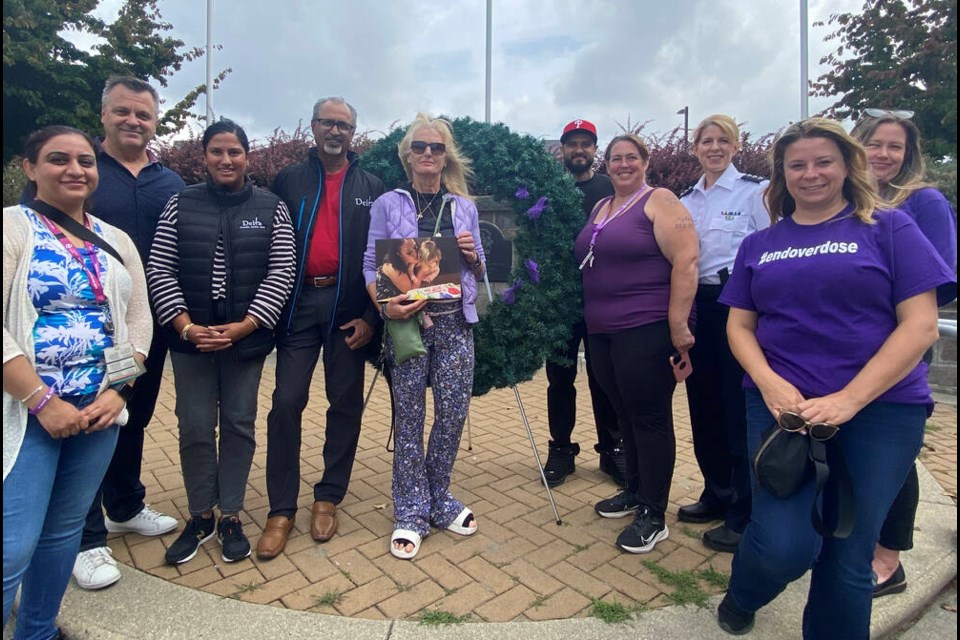On International Overdose Awareness Day (Aug. 31) the Delta community came together in remembrance of the 140 lives lost to toxic drug supplies since 2016.
The Delta Overdose Community Action Team (DCAT) collaborated with the City of Delta to organize a memorial and candlelight vigil in North and South Delta to honour the memory of loved ones and raise awareness of drug abuse.
Last year, British Columbia witnessed 2,272 deaths from toxic drugs.
The situation in Delta was particularly alarming, where 26 lives were lost due to substance misuse, constituting the region’s highest toll ever documented in a year.
As many came to show their support, putting purple ribbons on a wreath outside the North Delta Centre for the Arts, some shared their stories with the Optimist hoping their message could prevent further tragedies.
DCAT member Tammy, who has been sober for more than 10 years, recalled the battle against the physical and psychological grips that substances have had on her life.
“I didn’t realize I was addicted until I was 50 years old, and it took me to places where I was isolating myself,” she said. “They go very hand-in-hand together: mental health, drug abuse and alcoholism.”
Societal and self-stigma often inflict individuals struggling with drug use significantly. Combining the two could create a vicious cycle, where the fear of judgement prevents individuals from seeking assistance, prolonging the substance abuse and delaying recovery.
Blake Wilson, who lost his stepbrother to an overdose, said there is so much out there that the public needs to know about addiction and the available resources.
“It’s nice to have more immediate help for people who want it, which we do have in Delta,” Wilson said. “We need to be there for the people when they decide that they have had enough and they want help. Strike when the iron’s hot, otherwise, we could lose them.”
DCAT and many Delta community partners have united to tackle the root causes of support barriers like stigma and coordinate resources and services for individuals and families to overcome substance-related social issues.
“Our team is made up of individuals with lived and living experience, and we use our experience to help,” said DCAT peer coordinator Phil Kristofic said.



